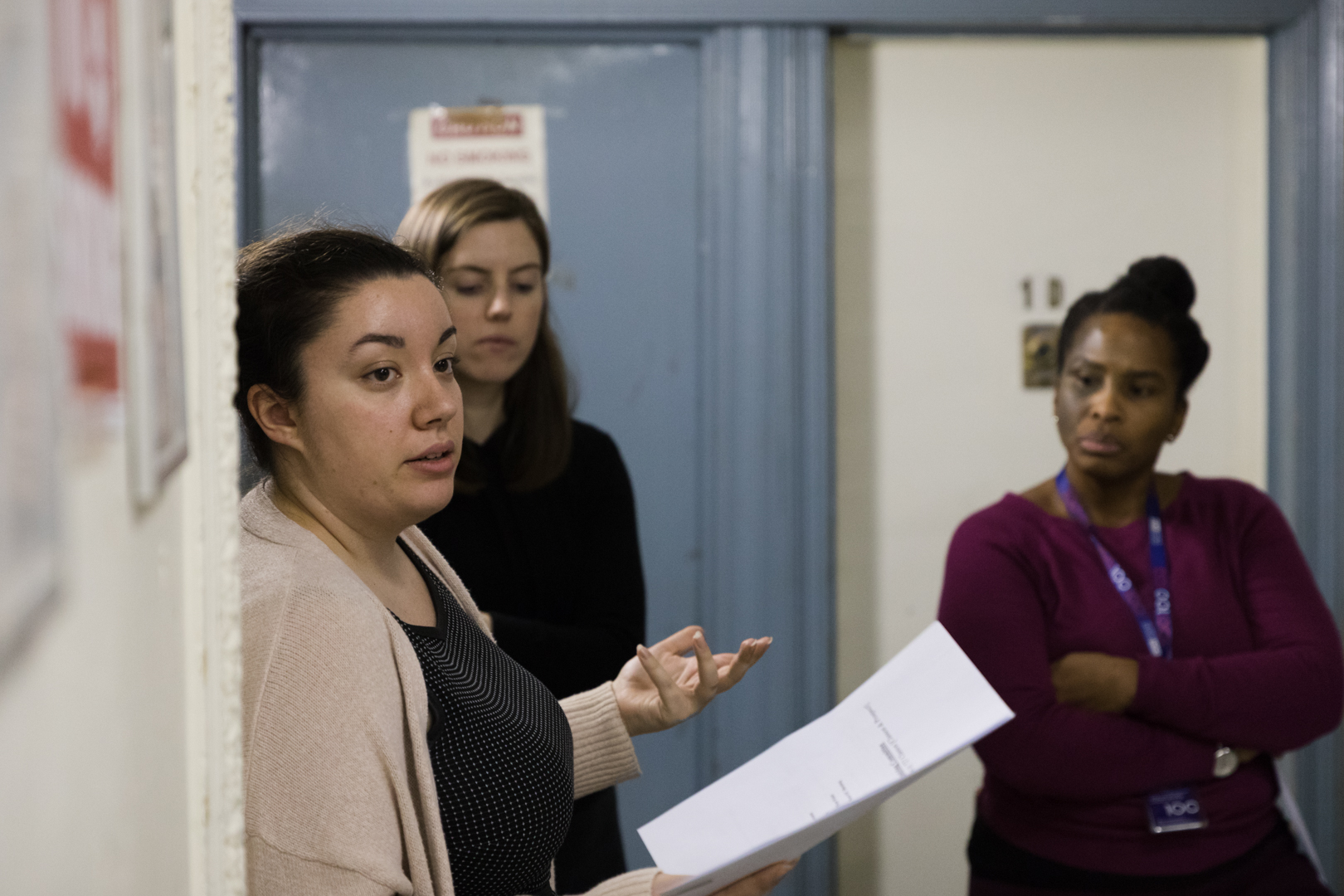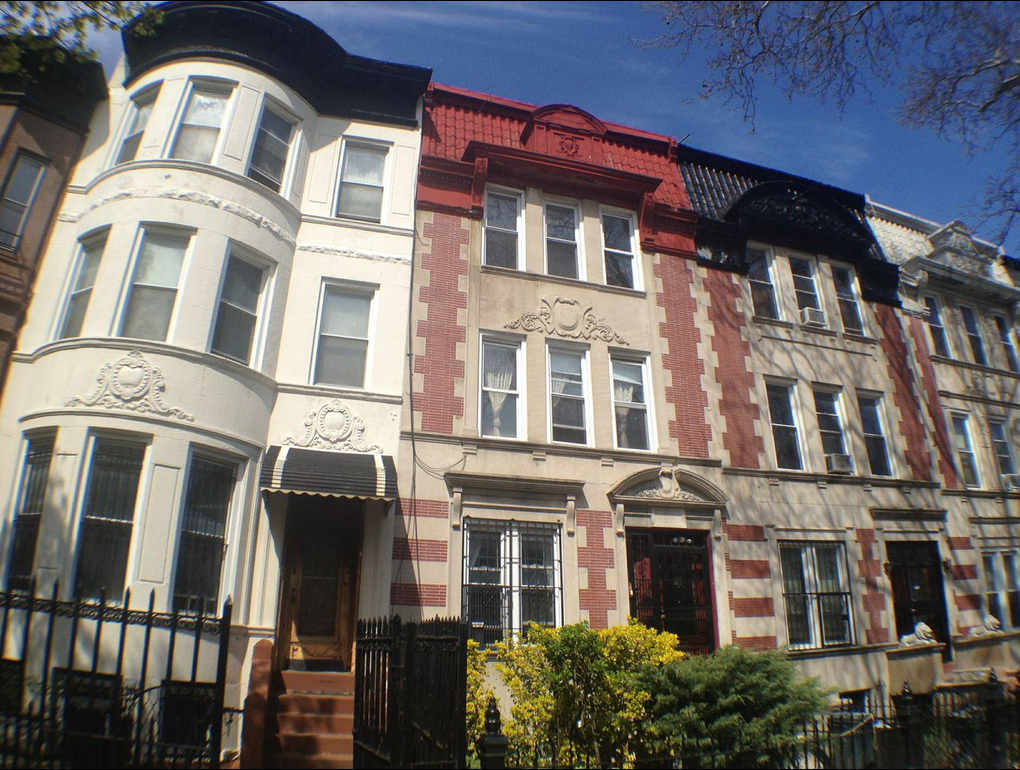Little-known rent reform law is big news for Crown Heights tenants
“All I did was go to work, pay my rent. I didn’t know that within my apartment I had rights.”

When 25-year-old Genna DeSimone moved into her newly renovated apartment in Crown Heights last summer with two roommates, the arrangement felt “good enough,” even though the rent was a steep $3,100 for a three-bedroom and the building, on tree-lined Dean Street, had multiple empty units on each floor. “We said, ‘This is shady,’” she recalled. “‘We’ll just stay here for a year and find a new place next year.’”
Then this spring, DeSimone learned that her neighbor Flossie Bonaparte, who has lived in the building for more than 20 years, was injured when part of the ceiling in her apartment collapsed. DeSimone overheard some neighbors in the hallway discussing what had happened, and “how they were going to start meeting up.” There was talk of reconvening the tenant union.
Now DeSimone, Bonaparte and dozens of their rent-stabilized neighbors at 1151-1155 Dean St. have filed two suits against their landlord, Renaissance Realty. One alleges that Renaissance illegally inflated rents in renovated units. The other claims that the company has ignored dangerous conditions in unrenovated units.
